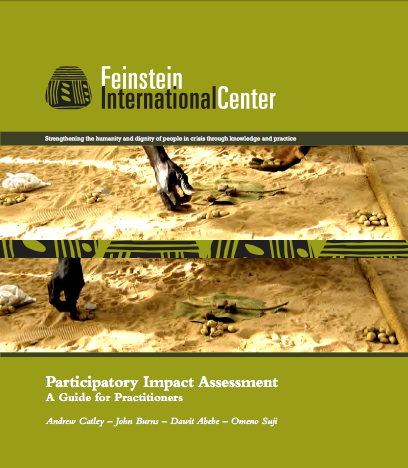The Feinstein International Center has been developing and adapting participatory approaches to measure the impact of livelihoods based interventions since the early nineties. Drawing upon this experience, this guide aims to provide practitioners with a broad framework for carrying out project level Participatory Impact Assessments (PIA) of livelihoods interventions in the humanitarian sector. Other than in some health, nutrition, and water interventions in which indicators of project performance should relate to international standards, for many interventions there are no ‘gold standards’ for measuring project impact.
This guide aims to bridge this gap by outlining a tried and tested approach to measuring the impact of livelihoods projects. The tools in the guide have been field tested over the past two years in a major research effort, funded by the Bill & Melinda Gates Foundation and involving five major humanitarian NGOs working across Africa.
The Participatory Impact Assessment guide is available in Spanish and French translations.







